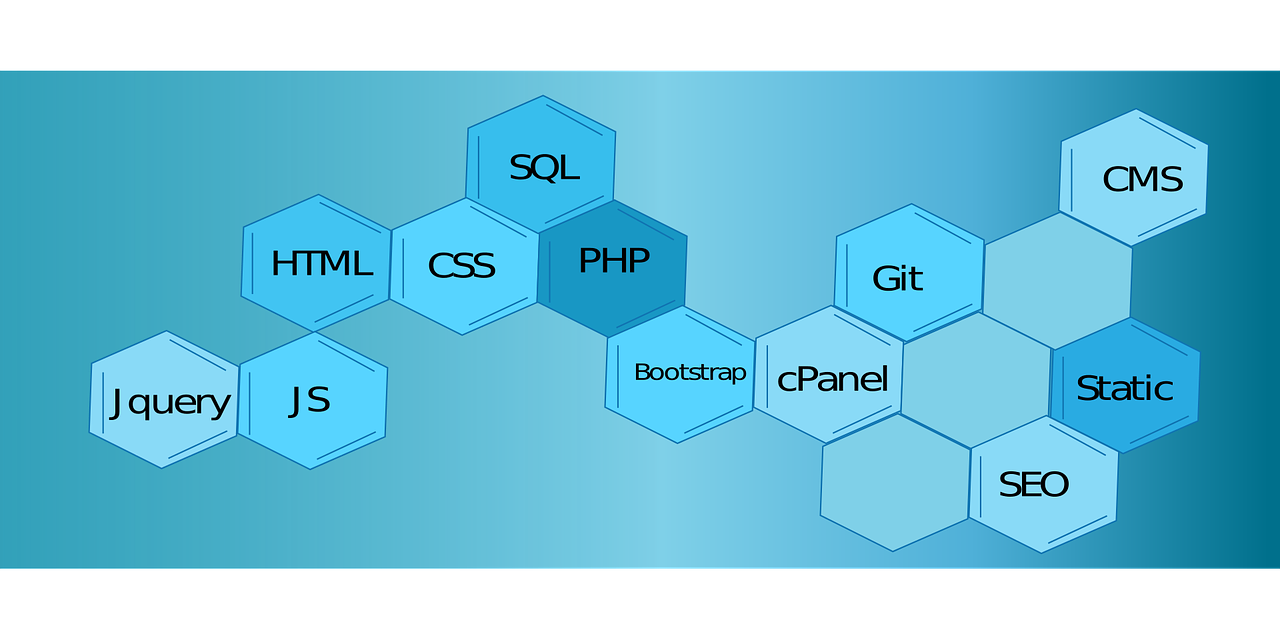Launching a startup is an exhilarating journey, filled with ambitious dreams and challenging decisions. Yet, beyond the initial enthusiasm lies a maze of crucial steps that can determine the longevity and success of a fledgling business. In 2025’s fast-evolving entrepreneurial landscape, it’s essential for first-time founders to approach this voyage well-prepared, balancing innovation with structure. Success stories emerging from accelerators like Y Combinator and Techstars reveal a common thread: founders who followed practical, focused checklists navigated uncertainties more confidently and efficiently. The startup world now demands more than just a groundbreaking idea; it requires adeptness in legal frameworks, strong online presence, leveraging AI technologies, and strategic financial planning. With platforms like Seedrs and Gust simplifying fundraising and tools such as Stripe and Shopify empowering e-commerce, founders are better equipped than ever but must stay vigilant over the multifaceted demands of business formation, compliance, and market validation. This guide unpacks the essential checklist, empowering first-time entrepreneurs to transform concepts into thriving enterprises through careful planning and execution.
Defining Your Startup’s Core Purpose and Value Proposition
Many startups stumble early not due to lack of funding or talent but because of unclear mission and value. A fundamental priority for any founder is crystallizing the “why” behind the business. This clarity helps steer decisions during turbulent phases and secures alignment among team members and investors. Unlike simply jotting down a business idea, defining a core purpose means understanding the deeper motivation that drives the venture—solving a real problem or delivering unique value that customers will appreciate.
Consider the example of an Airbnb-inspired hospitality startup whose founding team identified their mission as enhancing guest experiences beyond traditional hotels and typical short-term rentals. By having this clearly stated purpose, their business model prioritized personalized customer service and excellence in quality, setting the stage for competitive differentiation. For founders, articulating a distinct value proposition might involve identifying features such as sustainability commitments, technological innovation, or hyperlocal community engagement.
Steps to Craft a Strong Value Statement
- Research target market needs: Engage in customer interviews and analyze competitors to find unmet needs.
- Define your unique selling point (USP): Pinpoint what sets your product or service apart.
- Write a concise mission statement: Keep it targeted and inspirational to maintain focus.
- Test your assumptions: Use lean startup methodology to validate your problems and solutions early.
An effective value proposition is not static. First-time founders need to revisit and refine it based on market feedback. Notably, accelerator programs like Techstars encourage periodic reassessment as part of their coaching curriculum to help startups stay aligned with market demands.
Moreover, harnessing technology to articulate and evolve your mission is increasingly vital. Using AI-powered platforms can assist in generating investor communications, business model iterations, and marketing narratives, adding agility to your strategy development.
- Analyze competitor offerings on platforms like Shopify for positioning insights.
- Integrate customer feedback tools such as HubSpot to track satisfaction and pivot accordingly.
- Leverage Slack and Asana for internal alignment around mission-focused goals.
- Develop compelling storytelling for fundraising platforms, including AngelList and Seedrs.
| Component | Description | Example |
|---|---|---|
| Core Purpose | Why the business exists beyond profits | Deliver unparalleled guest comfort with a personal touch |
| Value Proposition | Unique benefit offered to customers | Fast, reliable pizza with a 30-minute delivery guarantee |
| Customer Problem | Issue faced by clientele | Limited affordable quality short-term rentals |
| Market Differentiator | Key element setting business apart | Use of AI for personalized experience customization |

Legal Formation and Compliance Essentials for First-Time Founders
Getting the legal groundwork right in the earliest days of a startup is often the difference between steady growth and sudden, avoidable setbacks. While the paperwork might seem tedious, legal formation is the spine of your enterprise. For U.S.-based founders, forming a Delaware C Corporation is a prevalent choice, especially among startups aiming for venture funding. The state’s streamlined filing process, familiarity among investors, and robust legal framework make it attractive.
Founders must take care of several basics immediately after formation:
- File the certificate of incorporation: This officially establishes the company’s legal entity.
- Appoint a registered agent: Required for receiving legal documents.
- Obtain an Employer Identification Number (EIN): Necessary to open bank accounts, pay employees, and file taxes.
- Register for local and state taxes: Crucial to stay compliant and avoid penalties.
- Apply for licenses and permits: Depending on the industry, e.g., food service, health, or e-commerce.
Many founders underestimate the consequences of mixing personal and business finances. The Small Business Administration (SBA) cautions that co-mingling funds can pierce liability protection, exposing founders to personal risk. Opening a separate business banking account on day one—using platforms such as Stripe for payment processing—ensures financial clarity and credibility.
Cybersecurity compliance has surged in importance. Startups face expanding regulatory demands including MFA (multi-factor authentication) on all accounts, encrypted devices, and robust privacy policies reflecting current data handling standards. The National Institute of Standards and Technology (NIST) underscores that cybersecurity measures are no longer optional; treating them like seatbelts safeguards company reputation and customer trust.
Legal considerations extend into intellectual property (IP). Checking the USPTO database for existing trademarks prevents costly conflicts. For technology innovations, filing provisional patents may lock in exclusive rights before seeking venture capital. Founders should also copyright original software or creative work to strengthen defensibility and investor confidence.
| Legal Step | Importance | Typical Timeline |
|---|---|---|
| Company Formation | Creates legal entity for operating | Days 0–15 |
| Bank Account Opening | Separates personal and startup finances | Days 0–15 |
| EIN Application | Required for taxes and payroll | Days 0–15 |
| Licensing and Permits | Ensures legal operation compliance | Days 0–30 |
| IP Protection (Trademarks/Patents) | Secures competitive advantages | Days 31–60 |
For founders aiming to scale globally, international tax structures become increasingly relevant. Resources like guides on international tax and global expansion clarify how to plan for cross-border operations while minimizing fiscal burdens. Early consultation with legal experts can preempt costly errors in setup and compliance.

Mastering the First 100 Days: From MVP to Market Launch
The initial three months post-company formation form a crucial period that sets the foundation for long-term growth and investor confidence. Many founders err by rushing product development or over-investing in a complex business plan. Instead, a disciplined approach centered around building a Minimum Viable Product (MVP), validating assumptions, and securing early customers is vital.
The recommended rhythm spans three key phases:
- Days 0–30: Organize the Business – Legal paperwork, banking, tax registrations, and baseline security.
- Days 31–60: Build & Validate MVP – Customer interviews, prototype development, pilot testing, and IP filings.
- Days 61–100: Launch & Measure – Public launch, sales process documentation, data tracking, and operational fixes.
The Harvard Business Review’s lean startup methodology strongly advocates for customer problem validation before writing code, reducing wasted effort. Establishing pilots—even if rough—helps gather indispensable feedback.
Throughout this period, founders should:
- Engage early adopters actively, using platforms like AngelList to gain traction
- Define pricing strategy and sales funnels clearly
- Implement analytics to monitor key metrics such as churn and conversion
- Plan fundraising readiness by maintaining an organized data room and detailed capitalization table
Operational infrastructure should not be overlooked: reviewing vendor contracts, setting up backups, and defining customer support practices prevent future crises. Adhering to accessibility standards like WCAG 2.1 AA is crucial, especially for digital products expected to pass Apple and Google app store reviews.
Tools such as Slack and Asana facilitate internal coordination, while Stripe helps manage payments seamlessly. Shopify remains popular for e-commerce founders to launch stores quickly with comprehensive backend support. For market exposure, social media networking and marketing automation platforms like HubSpot accelerate customer acquisition efforts.
| Phase | Key Activities | Outcome |
|---|---|---|
| 0-30 Days | Legal Setup, Bank Account, Tax Registrations | Foundation for operations and compliance |
| 31-60 Days | Build MVP, Customer Validation, IP Protections | Proof of concept and market validation |
| 61-100 Days | Launch Product, Sales Process, Metrics Tracking | Market traction and operational readiness |
Leveraging Technology and Networks to Accelerate Startup Growth
In 2025, no startup thrives in isolation. Participation in entrepreneurial networks and adoption of emerging technologies are critical catalysts for success. Platforms like Y Combinator and Techstars offer more than funding—they provide mentorship, connections, and exposure to investor circles.
First-time founders can cultivate a sustainable ecosystem by engaging in networking and community-building activities. Such involvement offers pragmatic benefits including:
- Access to AngelList to identify potential angel investors aligned with their sector
- Learning innovative financing methods through sites like Seedrs and Gust
- Collaborations with complementary startups leveraging tools like Slack and Asana
- Marketing support via HubSpot marketing automation and analytics
On the tech front, startups increasingly harness AI for automating investor pitch generation, content marketing, and operational policies, streamlining typical pain points in the founder journey. AI integration can enable personalized customer outreach, process optimization, and advanced financial forecasting.
The benefits of embedding technology also extend to e-commerce ventures. Shopify’s dynamic platform allows rapid store launches combined with seamless payment processing through Stripe. These technologies remove barriers, letting founders focus on innovation rather than backend complexity.

Financial Management and Fundraising: Securing and Sustaining Capital
Understanding the financial dimension from the outset is a strategic imperative for new founders. Managing cash flow effectively, laying out a clear runway, and preparing for fundraising rounds can make the difference between thriving and fading.
Strong financial stewardship includes:
- Creating detailed cash flow projections: Helps track incoming revenues and outgoing expenses, essential for managing runway and spotting issues early. Resources such as Mastering Cash Flow deliver insights into this critical discipline.
- Exploring innovative financing options: Beyond traditional venture capital, platforms like Seedrs open doors for equity crowdfunding, enabling startups to attract smaller investors worldwide (Innovative Financing for Entrepreneurs).
- Structuring founder agreements meticulously: Clearly defined equity vesting schedules and roles prevent conflicts and encourage long-term commitment.
- Understanding tax implications: Choosing the right business structure affects tax benefits and liabilities. Guides such as What Are the Tax Benefits of Different Business Formation Types? offer detailed comparisons.
Equally important is readiness for due diligence during fundraising. Investors scrutinize capitalization tables, intellectual property assignments, contracts, and financial documentation. Maintaining an organized data room signals professionalism and trustworthiness.
| Financial Focus Area | Importance | Founder Tips |
|---|---|---|
| Cash Flow Management | Keeps startup solvent during initial growth | Use automated tools, review projections monthly |
| Fundraising Alternatives | Diversifies capital sources | Leverage Seedrs for crowdfunding, connect via AngelList |
| Founder Agreements | Prevents legal disputes | Establish vesting and role clarity upfront |
| Tax Strategy | Optimizes financial efficiency | Consult experts early, use available guidelines |
By mastering these financial fundamentals, founders fortify their startups against one of the most common causes of early failure: running out of cash. Developing a 12-month runway mindset and continuously tracking unit economics enhances chances for sustainable success.


